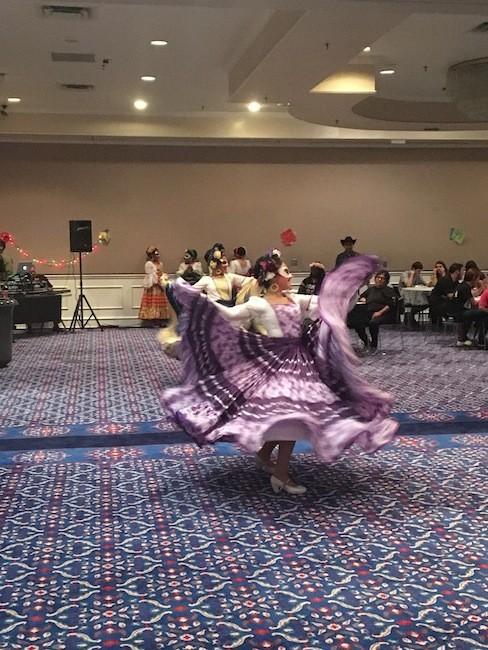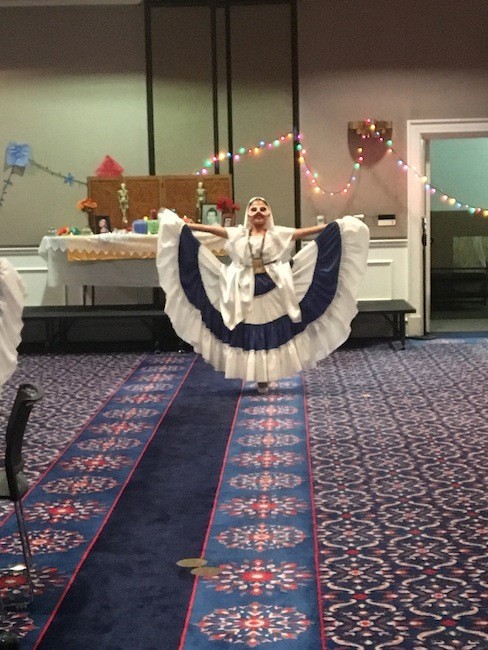*Editor’s note: This story has been updated throughout.
The sound of mariachi music filled the Hughes Trigg student center on Wednesday night.
Following the sound of the music, the parade of bright colored dresses, and the smell of food, visitors were led to the ground floor SMU student center ballroom.

This is SMU’s organization ‘League of United Latin American Citizens’, or LULAC, annual Dia de los Muertos event.
A traditional Mexican holiday, LULAC aims to teach the SMU community about the Hispanic culture.
“I hope people get to experience something different,” said LULAC communications director Daisy Jamaica. “I don’t think you can experience this every day. And if you’re not Hispanic you don’t know much about it.”
The line stretching out the door of people waiting to get in and to get bodes well for the organization trying to broaden its reach on campus.
The tables in the ballroom seat more than 160 people and were full with some guests standing and others dancing.

Aside from putting on the ‘Dias’ event, LULAC president Emely Villeda says the organization focuses on community service and socio-political outreach.
The group hosts a voter registration event, community service trips in the DFW community, and brings in speakers to encourage higher education.
All of these events they say, are a chance to interact with people you might not see on a normal day on campus, as well as giving everyone a little taste of what SMU Latinos have to offer.
Whether guests came for the Mexican food or face painting, they stayed and enjoyed the music, dancing, and cultural education.

“I like learning about new cultures and it sounded really interesting,” said SMU senior Zainab Fatima. “I’ve never gone before and I really like it, it’s amazing.”
SMU sophomore Omar Salazar says that LULAC is more than just spreading the Hispanic culture.
“It’s about getting used to looking at things that are different than what you’re used to,” said Salazar. “That’s what college is about, trying new things and having more experiences and getting close to each other,” he said. “If we’re not close to each other there’s no chance for understanding our conversations.”
*Disclaimer: Meghan Klein is a contributor for The Daily Campus.








